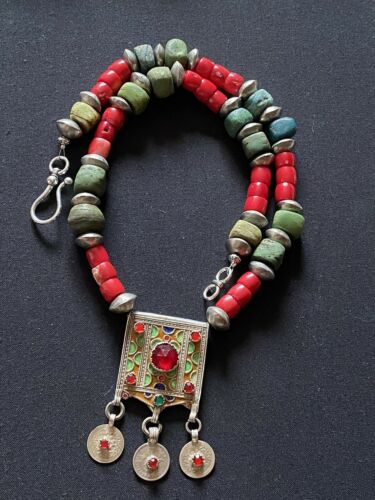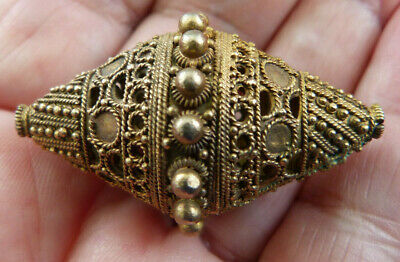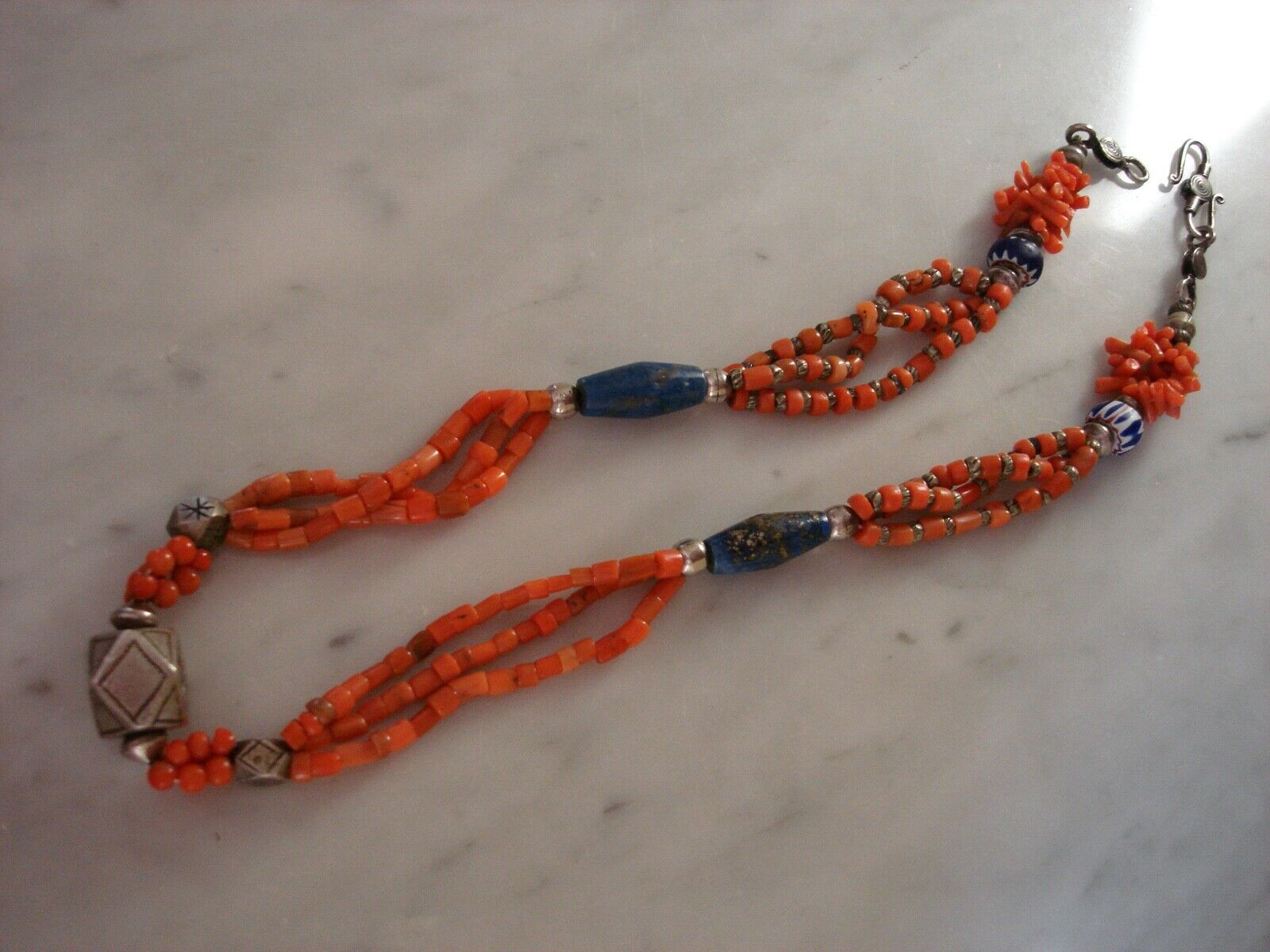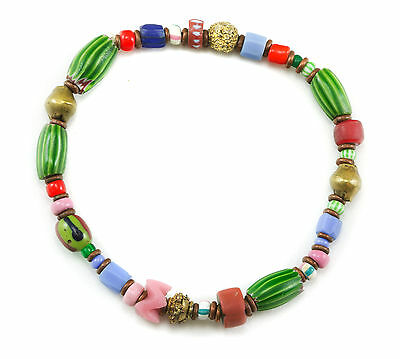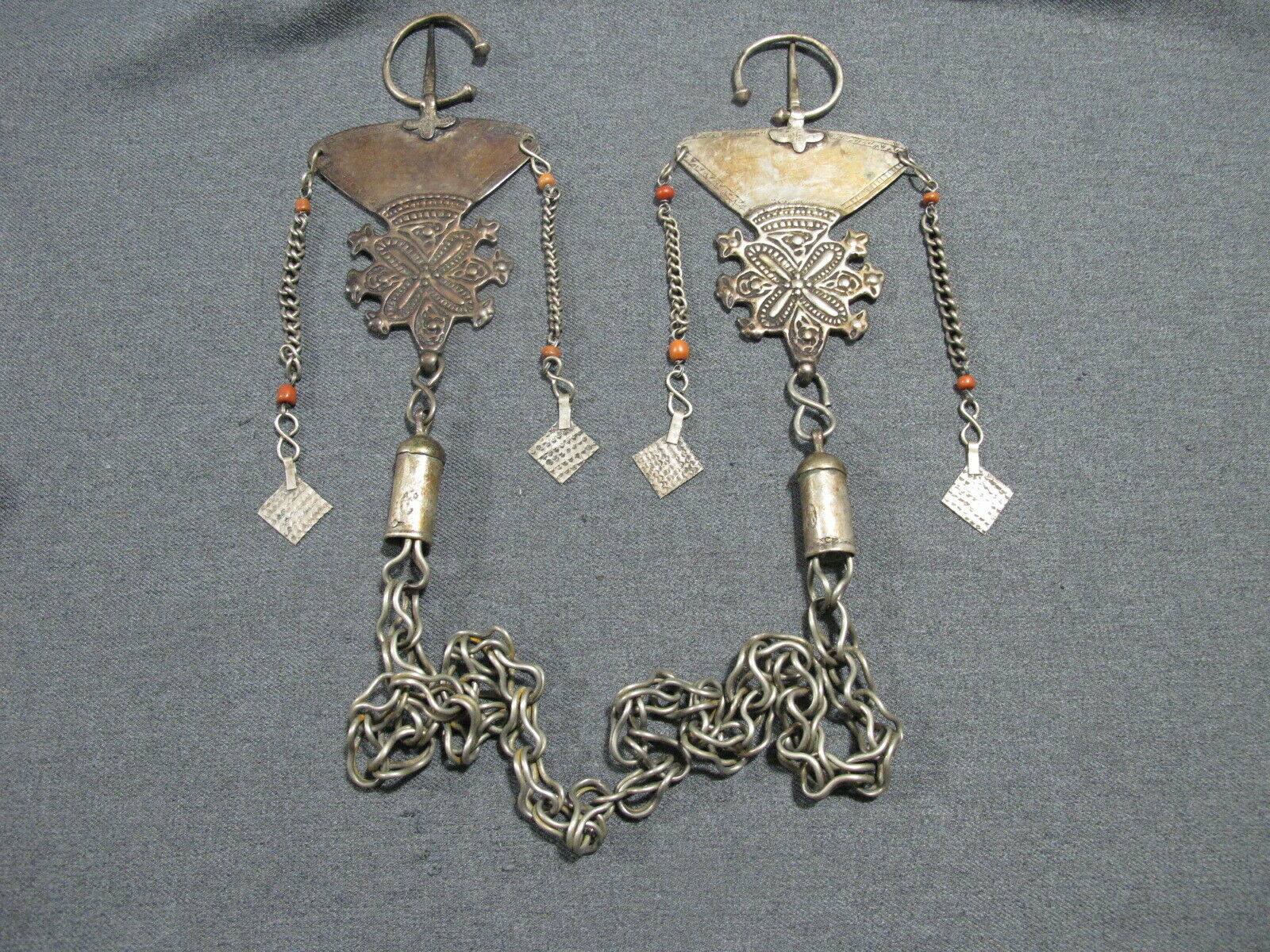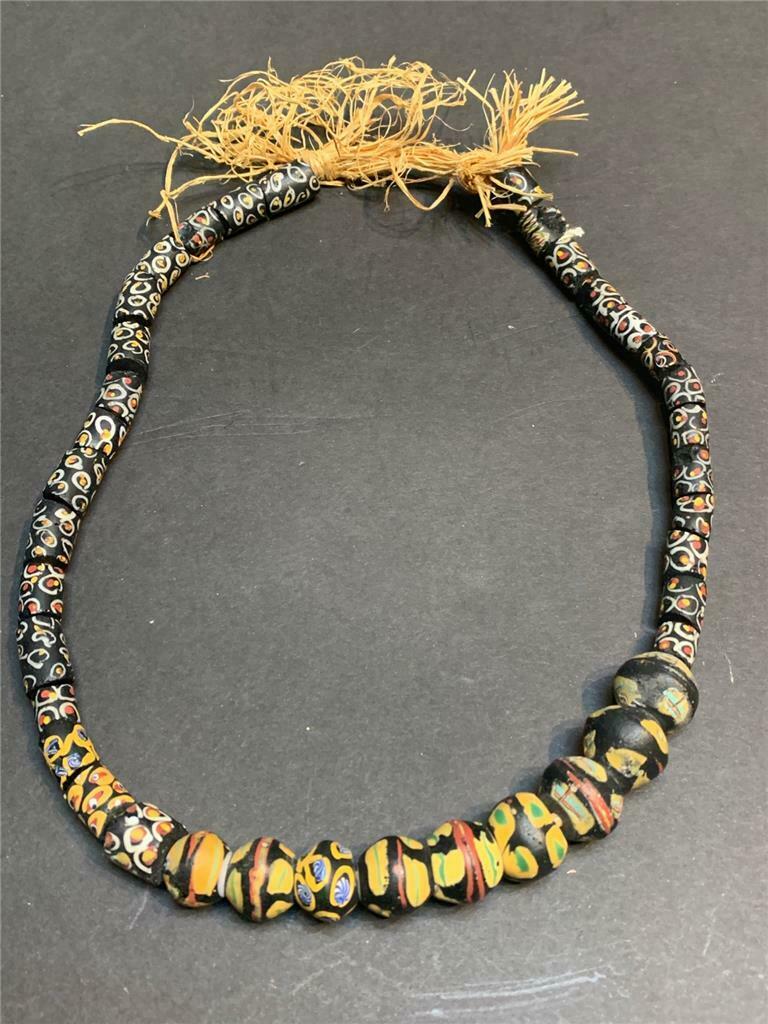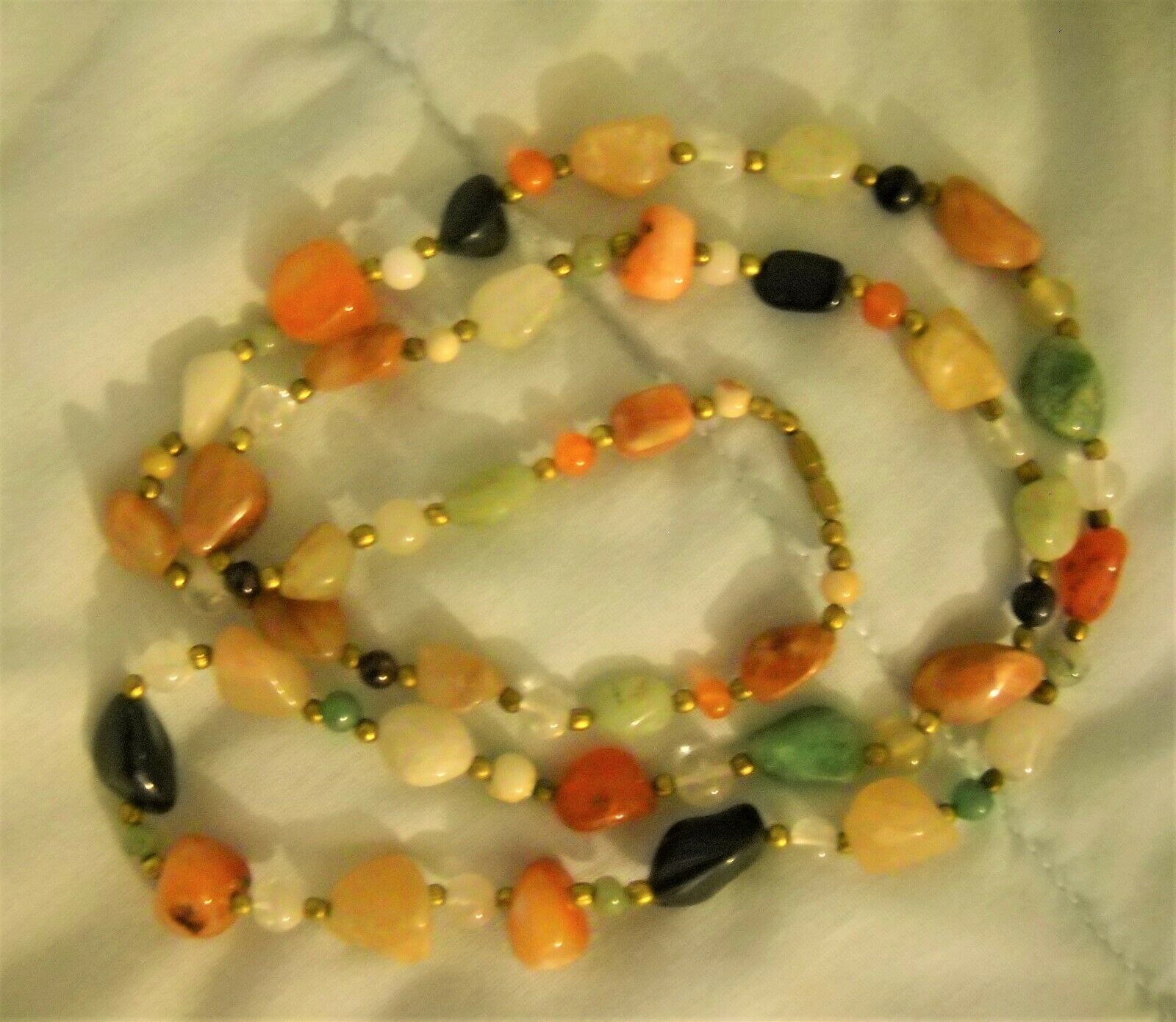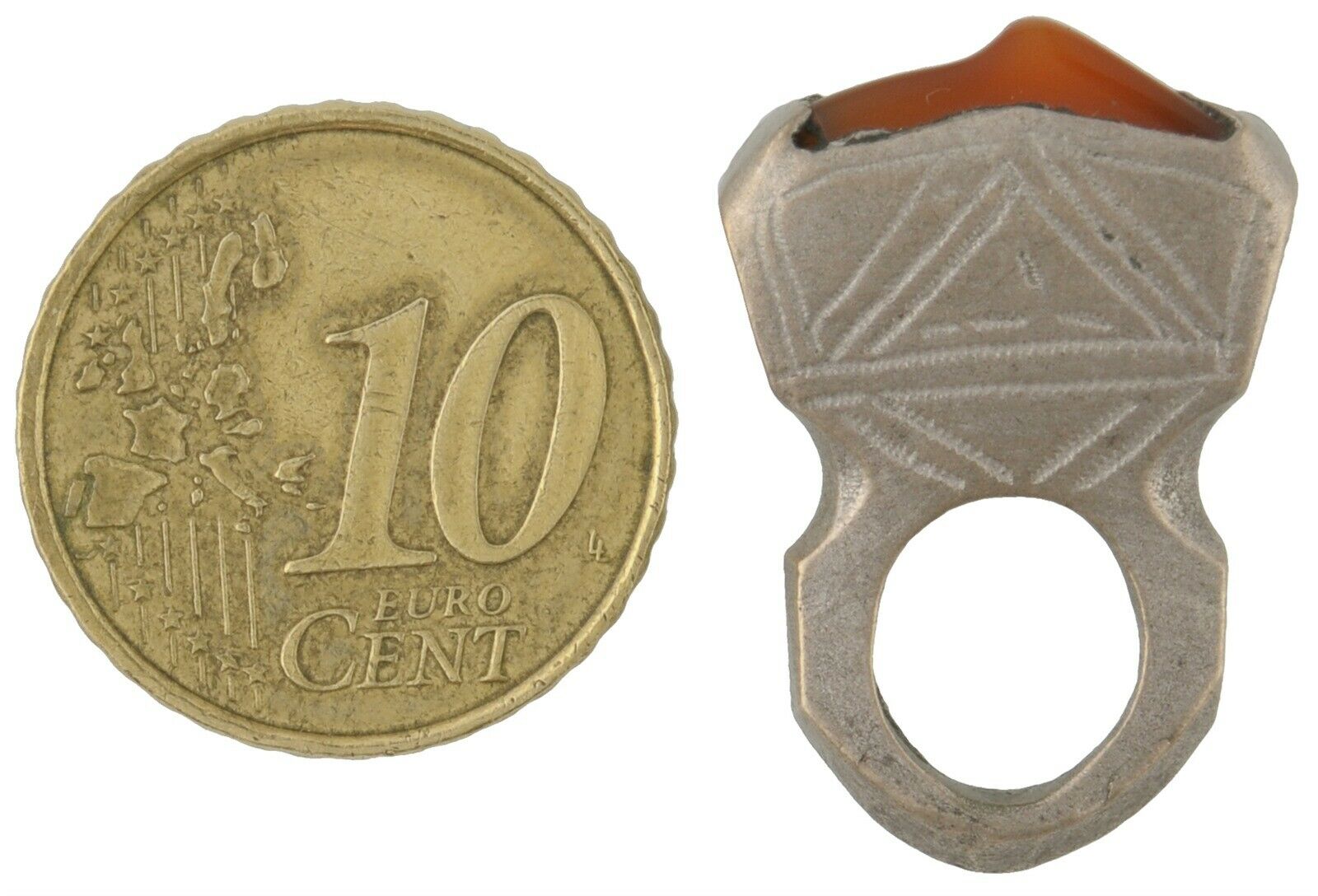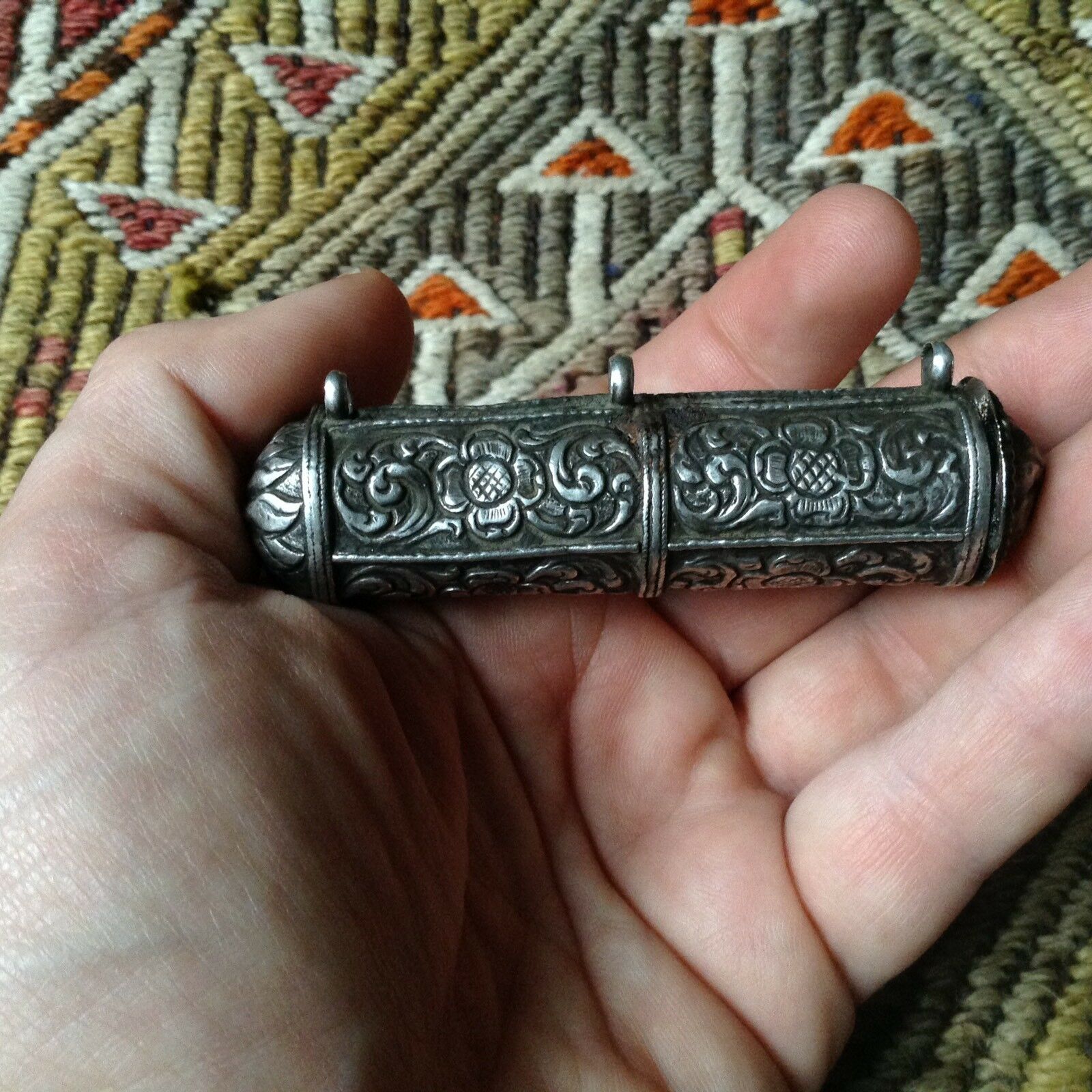-40%
Hebron Vintage Beads & Berber Hirz With Old Moroccan coins & red coral necklace
$ 137.8
- Description
- Size Guide
Description
Moroccan Berber Hirz Enamel Amazigh Tiznit Tifinagh antique coin pendant & vintage hebron beads with red bamboo sea coral handmade necklace.Antique Morrocan silver enamel Berber Hirz pendant measures 3” in height ( including coin charms) by 1.5” in width.
3 vintage old circulated coin charm pendants.
Beautiful glass enamel intricate details Hirz prayer box silver pendants with red Venetian glass accents.
Vintage green/blue collectible Hebron Glass beads varying from 14mm to 22mm.
Multiple Moroccan silver bicone handmade vintage beads.
Bright red bamboo sea coral beads 12mm to 14mm approximately.
Silver bicone Morocco African beads.
Large old silver Tibetan hook clasp.
Length of this necklace is 26”
One of a kind unique collectible item.
Moroccan Berber Hirz Enamel Amazigh Tiznit Tifinagh antique coin pendant & vintage hebron beads with red bamboo sea coral handmade necklace.
A Silver prayer box pendant, known as a "Hirz" was typically part of a woman's wedding regalia, and the intricate silver techniques were perfected by silver smiths before World War II. These pendants usually show a fair amount of wear, likely from being a much-loved piece of jewelry. As such, many of the designs at each end -- along with the silver itself -- have worn down over the decades. Handmade by local Artisans and typically decorated with colorful enamel.
Sometimes referred to as amulet or talisman due to fact that it might have had a prayer put inside of it for protection.
Antique glass Hebron beads from the African Trade. These date back to anywhere from the 1800's. Beautiful and rare shades of green. Some chips and wear on these old beads.
Average Size: range from about 18 to 22mm in diameter. Color: Various shades of green. Material: Glass
Take a look at these amazing Hebron beads, brought here from Africa. These bead are sometimes referred to as "Kano Beads". They are said to have been made in Hebron before 1800. The beads measure approximately 18mm to 22mm. This unusual green color is more rare. A few beads may be chipped due to age.
Coral has been called the 'garden of the sea'. It was once believed to be a plant, but is now known to actually contain living animals called polyps. Coral is the result of accumulated skeletal masses from these polyps. Red is considered the most sought after color but coral also can be found in pink, white, yellow and black.
Records dating back thousands of years confirm that coral was used in decorative art objects. It was believed to prevent ill fortune and offer protection from skin disease when worn as a necklace. Dreams about coral are believed to foretell recovery from a long illness. Ancients believed that Mars was composed of red coral.
Coral symbolizes life and blood force energy. Dark red coral is used for heating and stimulating the bloodstream. Pink shades restore harmony to the heart. It is used as an aid to depression, lethargy or deficient nutrition.
Locations where coral can be found include the Mediterranean Sea, off the coast of Australia, the South Pacific, the waters of Japan, and Africa.
Special Corals are well known for their red, pink or orange skeletons that have been used since antiquity for ornament, medicine, talismans and currency.
The skeletons of some coral species are so hard that they can be beautifully polished for use in sculptures and jewelry.
Berbers call themselves some variant of the word i-Mazigh-en (singular: a-Mazigh), possibly meaning "free people" or "noble men". The name probably had its ancient parallel in the Roman and Greek names for Berbers, Mazices.
The berber language (Tamazight) is one of the oldest languages of humanity. Nowadays, it is spoken by the people of North Africa , Egyptian oasis of Siwa and the Touaregs in the Sahara (desert).
From Central Atlas Tamazight
ⴰⵎⴰⵣⵉⵖ
(amazi
ɣ
). From the active participle
ⴰⵎ
(am) and
ⴰⵣⵉⵖ
(azi
ɣ
), whose meaning is unknown but is possibly related to "aze" ("to be strong" in Taznatit), or perhaps "je
ɣ
e
ɣ
" ("to be brave" in Tamasheq); z and j frequently swap out in The Berber are the indigenous people of North Africa, west of the Nile Valley. Many Berbers call themselves some variant of the word Imazighen(singular: Amazigh), possibly meaning "free people" or "free and noble men". The word has probably an ancient parallel in the Roman name for some of the Berber, "Mazices".
The name Berber comes from the name given to this people by the Romans, meaning barbarians. The history of the Berber people in northern Africa is both extensive and diverse. Their oldest ancestors settled in the East of Egypt.
The boho style jewelry is definitely a hot trend at the moment.
Boho lifestyle is mainly about the free spirit, peaceful mind and individualism in terms of fashion trends. Dive into the magical world of the wandering by adding this uniquely designed bohemian handmade necklace to your wardrobe!
